At one time or another, we’ve all been in the pit.
There are different ways we end up there, but the feelings are the same. Trapped. Helpless. Stuck.
Maybe you allowed your anger to run freely and the words flew out before you could stop them. You know there is no way to take them back or to undo the wounds you’ve caused.
Maybe you are 15, pregnant and unsure about what the future holds. You were just having fun. You never planned on this happening and now you are scared, alone, and afraid.
Shame runs over, hot and scalding, as you close the website. You know, the one you promised to never go to again. You mean it every time you promise, and yet, in a moment of weakness, you run back to the site and the allure of the pictures. You know you’ll never forget the images you’ve seen there and, to be honest, sometimes you call them up in your mind and feel the excitement all over again. But after the rush of excitement, overwhelming shame takes its place.

Is there a way out? Is there help for us, deep in the pit? Dare we even ask for help when, by our own choices and actions, we’ve dug the hole we are currently sitting in?
We know God is powerful and He can help us, but will He help us when we are the reason we are in the pit?
If He didn’t help, none of us would have hope. We would stay stuck and helpless forever.
He doesn’t just pick us out of the pit, dust us off, fluff our hair and tell us to get back to life, the way we might do to a child who has skinned their knee. God loves us too much to ignore the darkness inside of us that led us to the pit in the first place. He pours His love on us as he deals with us though a painful process that involves these steps: Confrontation. Confession. Repentance. Forgiveness. Through this process, He opens our eyes to the darkness inside our hearts, shows us our deep need of Him, and lavishly forgives us.
The life of David offers us an example of how God deals with us in the pit in 1 Samuel 11:2-12:24.
David was described as being a man after God’s own heart, and yet he dug himself into a deep, dark pit during the whole Bathsheba scandal. If you haven’t read it, the short version is that David saw Bathsheba’s beauty, slept with her, and had her husband (one of his own soldiers) killed in battle when she became pregnant. Then he brought her over to the palace to be his wife. The secrecy, deception, betrayal, and abuse of power here is horrendous.
And God saw every move David made.
Did God stop loving David? No. He loved him too much to let him keep these horrible actions hidden. He loved David enough to bring these actions into the light where they could be dealt with, where forgiveness could be given, and David’s relationship with God could be restored. He sent Nathan to confront David. And once David admitted to his wrong, the process continued.
The Psalms that David wrote during this time describe this progression.
In Psalm 38, David writes about the physical effects of his sin. He is overwhelmed by guilt and calls out to God for help.
Because of your wrath there is no health in my body;
there is no soundness in my bones because of my sin.
My guilt has overwhelmed me
like a burden too heavy to bear.
In Psalm 51, David calls out for God’s forgiveness. He asks to be cleansed and restored. He doesn’t make excuses for his actions. He owns up to them. This is repentance.
Have mercy on me, O God,
according to your unfailing love;
according to your great compassion
blot out my transgressions.
Wash away all my iniquity
and cleanse me from my sin.
For I know my transgressions,
and my sin is always before me.
In Psalm 103, David feels God’s forgiveness, and feels restored to fellowship with God. The whole tone of this Psalm is praise. David knows he has been forgiven.
Praise the Lord, my soul;
all my inmost being, praise his holy name.
Praise the Lord, my soul,
and forget not all his benefits—
who forgives all your sins
and heals all your diseases,
who redeems your life from the pit
and crowns you with love and compassion,
who satisfies your desires with good things
so that your youth is renewed like the eagle’s.
Just as God loved David too much to let his actions stay hidden, He will also bring our dark deeds into the light in order to get us out of the pit.
Confrontation. Confession. Repentance. Forgiveness.
Forgiveness does not erase the consequences of our actions. There is a sowing and reaping effect in our lives. If we do things that eat holes in our soul, then we will have a soul filled with holes and a distant relationship with God. Thankfully, our story does not end there. There is hope because there is grace. Beautiful, messy grace.
David received this messy grace. God named the consequences David would have to endure. “You did it in secret, but I will do this thing in broad daylight before all Israel.” As a result of David’s actions, there was tragedy, humiliation, and shame in his family for years to come. Yet there were also blessings in David’s life. Messy grace.
We also have access to this messy grace.
God’s messy grace slides in and around the consequences and fills up the holes in our soul, breathing life in the midst of heartache.
Because of God’s messy grace we take steps to repair broken relationships.
Because of God’s messy grace we rejoice over a new life in spite of the circumstances.
Because of God’s messy grace we recognize our brokenness and seek help.
Because of God’s messy grace, there is hope, and a way out of the pit.
![iceland-498295[1]](https://erinulerich.files.wordpress.com/2015/08/iceland-4982951.jpg?w=300&resize=300%2C199)
For with the Lord there is steadfast love, and with Him is plentiful redemption.” Psalm 130:7





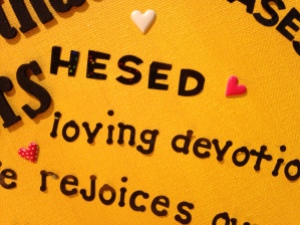




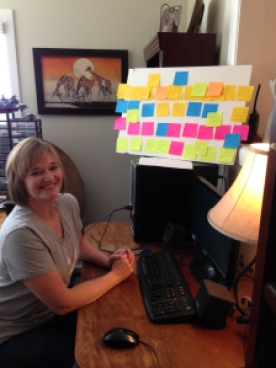
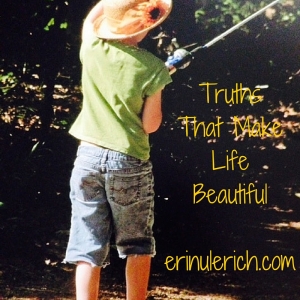


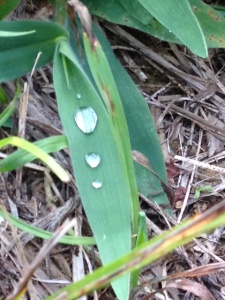






![iceland-498295[1]](https://erinulerich.files.wordpress.com/2015/08/iceland-4982951.jpg?w=300&resize=300%2C199)

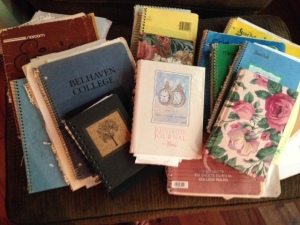
![FullSizeRender[2]](https://erinulerich.files.wordpress.com/2015/07/fullsizerender2-e1440011191782.jpg?w=300&resize=300%2C225)